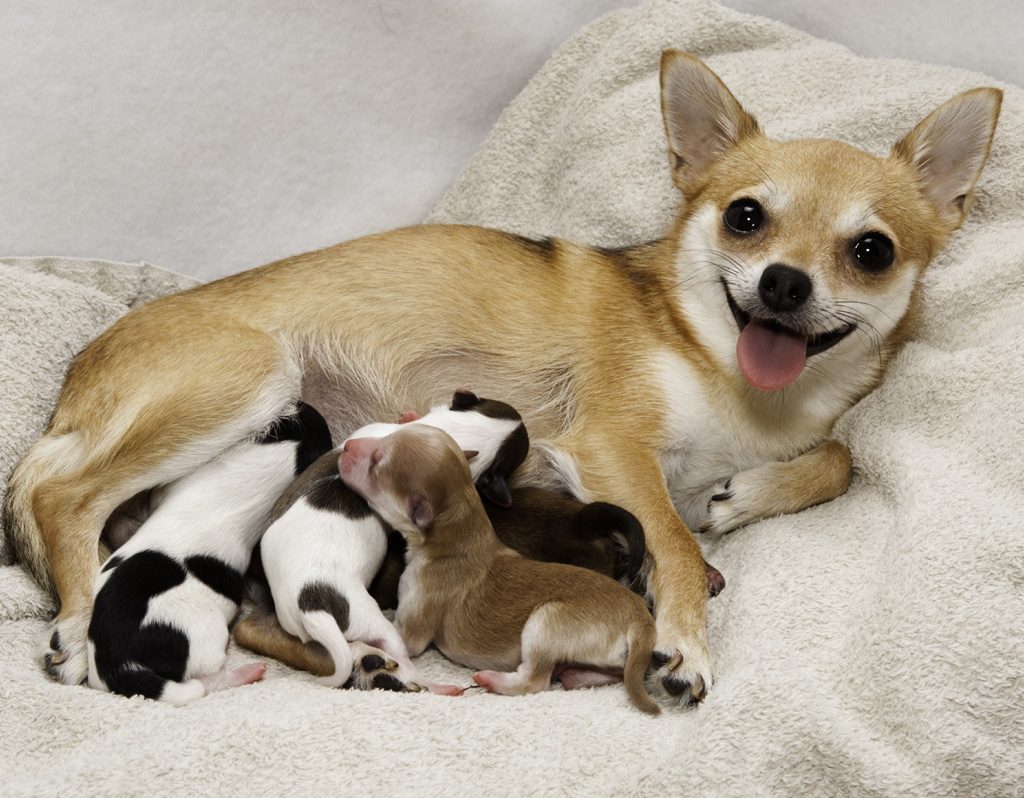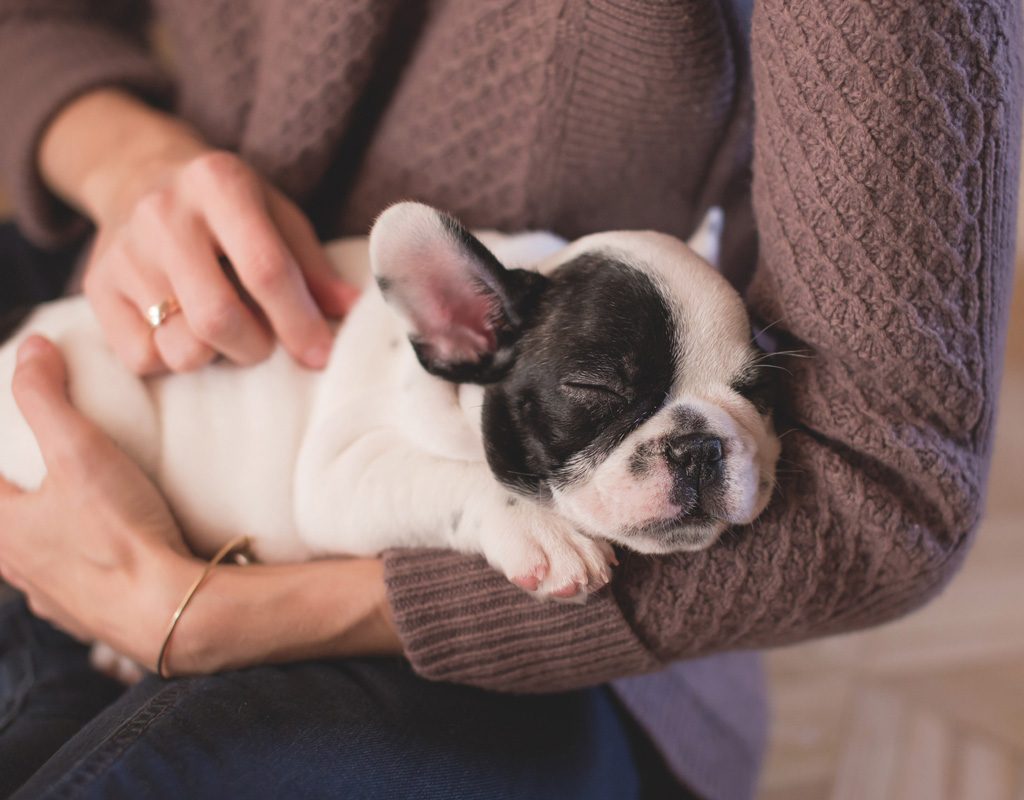Just like kids, puppies develop physical, cognitive, and social skills at different stages during their first year of life. Understanding the development of a growing puppy and how to support him through each stage can help him grow into a healthy adult. The following guidelines offer general week-by-week guidelines for the stages of a puppy’s development during their first year.
Development stages in a puppy’s first 12 months
Neonatal stage (0-2 weeks)
From birth to 2 weeks of age, puppies are completely dependent on their mother for food. They are born with the senses of taste and touch and they are capable of slow crawling. During this stage, puppies are unable to urinate or defecate on their own so their mother must stimulate them to go by licking their anuses and genitals.

Transitional stage (2-4 weeks)
This is an exciting time as puppies start opening their eyes, developing the senses of hearing and smell, and cutting baby teeth. Between 3 and 4 weeks of age, they begin to go to the bathroom on their own. Weaning also begins during the transitional period. According to Seattle Humane, at 4 weeks old, the puppies have well-developed sight. They also begin to stand, walk, wag their tails, bark, and show personality traits.
Socialization stage (4-12 weeks)
A lot happens during the socialization stage. By 4-6 weeks, puppies are learning important socialization skills from their mom and littermates. Those lessons include bite inhibition; siblings teach one another not to bite or nip too hard while playing. Puppies are getting curious at this stage and, according to behaviorists, this is a great time to expose them to positive people experiences. By 7-9 weeks, puppies have developed all of their senses and are ready to begin housebreaking. This is also when they experience fear. Positive training is essential during this stage. From 9-12 weeks of age, puppies begin to focus on people and benefit from puppy socialization classes. The American Veterinary Society of Animal Behaviorists offers tips on how to safely socialize puppies before they are fully vaccinated. Walking is a great way to expose puppies to new experiences, but because their bones are still developing, it’s important not to overdo it.
Ranking and testing period (3-6 months)
This is when growing puppies start to test boundaries with people and other animals within their families. At 4 months, they go through another fear stage. Training experts promote enrolling puppies in a positive training class to help them through this stage. This is also the teething and chewing stage when puppies need constant supervision. Providing lots of chew toys can help soothe sore gums.
Adolescence (6-18 months)
This is one of the most challenging developmental stages when raising a puppy. According to the American Kennel Club, when pups become “teenagers” they tend to forget everything they’ve been taught. The best way to get through this stage is to provide enough exercise and positive reinforcement training. While teething is usually complete by 6 months of age, adolescents can go through a second territorial chewing stage between 7 and 9 months. Adolescent dogs who haven’t been spayed or neutered will start exhibiting sexual behaviors.
How to take care of a newborn puppy at home
Provide warmth
Puppies can’t regulate their body temperature until they are 3-4 weeks old, so it’s important to provide a warm, clean whelping box for mom and her pups. A heating lamp hanging above the box works well. Be sure they can move away from the heat source if they get too warm.
Avoid too much handling
It is important not to intervene too much in the first week or two as the pups are susceptible to disease. Excessive handling can also be stressful for both mom and babies. Be cautious approaching the puppies as some moms may show aggression when protecting their babies.
Allow mom alone time
As the puppies get older and more active, give mom space to get away from them. Just make sure she returns regularly to care for her babies.
Monitor puppies’ weights
Monitor the puppies’ weight gain carefully. Depending on the size of the litter, you may have to provide supplemental food by bottle feeding with commercial puppy formula. Note that if you are caring for orphan puppies, you’ll need to bottle feed round-the-clock.

When do newborn puppies open their eyes?
Puppies’ eyes are closed when they are born because their eyes aren’t fully developed. Typically, they open between 1-2 weeks although at this early stage the puppies will have limited sight. While puppies naturally open their eyes at their own pace, veterinary experts at the VCA Hospital say if there is any sign of swelling or bulging under the eyelids, discharge, or pus the eyes should be gently opened and cleaned. It’s best to have this done by a veterinarian.
In conclusion
Finally, removing a puppy from his litter too soon can lead to behavioral problems in adulthood. According to Veterinarian Karen Becker, between 3 and 14 weeks of age is when a “puppy’s brain is primed to accept new experiences with minimal fear.” She explains that positive socialization experiences during this stage of development can have a “profound impact” on the character and temperament of an adult dog.



